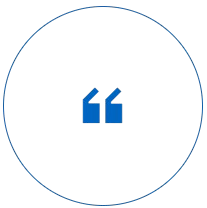BESTMEDGRAPE turned Mediterranean wineries’ waste into a circular economy opportunity, transferring advanced research on grape by-products into market-ready applications.
It trained 150 entrepreneurs across five countries, including 30 in Lebanon, where Innovety partnered with Berytech and USJ to deliver a feasibility plan and train entrepreneurs to build business cases in nutraceuticals, cosmetics, food additives, and natural pigments, in line with the goals of our Socioeconomic Development Strategy service.
This created a new entrepreneurial pipeline, helping participants identify viable industries and export markets where grape-derived products could thrive. At the regional level, the project is expanded the grape value chain through nanotechnological products, boosting local economies, reducing environmental pollution, and creating sustainable jobs.
The Mediterranean’s vineyards, long celebrated for their wines, generate millions of tons of grape pomace and seeds each year. While wineries focus on juice extraction, these by-products—containing up to 70% phenolic compounds—are typically discarded or sold cheaply as compost or animal feed.
Yet they are rich in polyphenols, linoleic acid, and natural vitamin E: bioactive ingredients prized in global nutraceutical and cosmeceutical markets for their natural antioxidants and anti-aging agents. They are core ingredients in:
With the global natural cosmetics market projected to exceed $54 billion by 2027, grape waste represents an underutilized resource with huge commercial potential. For Lebanon—with its strong agro-food base and growing green innovation ecosystem—grape waste could power new value chains and exports.
But without systems to bridge science and entrepreneurship, the opportunity risks being lost, leaving behind both environmental burdens and missed economic growth.
Key pain points
Building an entrepreneurial pipeline
Berytech and partners recruited 150 potential entrepreneurs (30 per country) to join a capacity-building program. Innovety shaped the entrepreneurship training curriculum, delivering 60+ hours per participant across two phases: idea validation and business development. Modules covered entrepreneurship, finance, marketing, IP, creative thinking, and pitching, with Innovety experts facilitating ecosystem dialogue and serving on pitching panels.
Economic feasibility & market targeting
For Lebanon, Innovety developed a feasibility plan that mapped industries where grape waste extracts could be applied, including nutraceuticals, cosmeceuticals, natural food colorings, and antioxidant additives. The plan also identified export markets that Lebanese producers could target, giving entrepreneurs a roadmap to commercial viability.
Entrepreneurship training in Lebanon
Between March and October 2021, Innovety co-designed and delivered training for 30 Lebanese entrepreneurs and startups selected by Berytech. The program blended plenary sessions with one-on-one coaching, covering market validation, customer problem analysis, business creation, financial planning, marketing strategy, digital outreach, and pitching.
Hands-on business case development
Innovety guided participants through the development of business cases, helping them validate product concepts and prepare pitch decks. Each entrepreneur identified potential buyers and export markets, ensuring their concepts were both technically sound and market-ready.
Ecosystem engagement
To strengthen value-chain connections, Innovety facilitated roundtables and brought wineries, agro-food SMEs, and public institutions into dialogue with entrepreneurs. This created alignment with BESTMEDGRAPE’s cross-border Living Lab methodology and ensured ventures were anchored in Lebanon’s ecosystem.
Technology transfer for impact
At the regional level, universities and research centers—including USJ—hosted Living Labs where new green extraction methods (such as ultrasound and IR-assisted techniques) converted grape pomace into bioactive compounds. Innovety provided advisory support on commercialization pathways, translating technical research into startup concepts and investor-ready pitches.
Cross-border collaboration
Finally, a shared technological platform and international expert network were created, linking research institutions, businesses, and policy actors across the Mediterranean. This reinforced BESTMEDGRAPE’s mission to build a cross-border ecosystem for circular economic innovation.

The Mediterranean wine industry generates millions of tons of grape waste every year, yet its potential remained untapped. Through BESTMEDGRAPE; an EU project that supported the valorization of grape waste, Innovety worked with Berytech, Saint Joseph University of Beirut, and wineries like Ksara, Kefraya, and St. Thomas, to train 30 entrepreneurs on business validation, marketing, finance, and pitching. This collaboration helped build startups that transformed winery waste into nutraceuticals and cosmetics, driving sustainability and growth, and contributing to a cross-border model with 10 technical outputs for long-term impact.
Ramy Boujawdeh